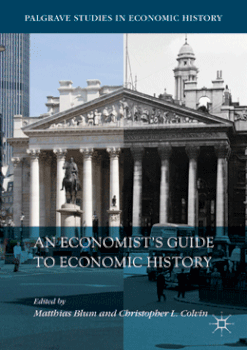|
We are in the midst of a global pandemic. Unprecedented. Or is it?
Pandemics are rare events, and pandemics on this scale are rarer still. Economic historians are uniquely placed to contribute to understanding the COVID-19 crisis because rare events are our bread and butter. We can combine economics and history to identify useful historical parallels, to draw analogues between pandemics and other human catastrophes from our past with those of today. We can use economic history to reflect on events as they unfold in real time. Of course events will never play out the same way twice; there are clearly differences today that must be factored into the discussion. But identifying these differences, and thinking about the potential impact of these differences on outcomes, requires us to have a baseline comparison. These baseline comparisons can only come from the past. We therefore need economic history more than ever. One important historical episode that can teach us about the present is the 1918 influenza pandemic. Together with Eoin McLaughlin, I have written a short piece about it for The Conversation. You can read it here. We focus on the policy lessons from the Spanish flu, including the efficacy of social distancing measures. A number of economic historians have already completed research which contributes to the global conversation on COVID-19 and its possible social, demographic and economic impacts. The Economic History Society's blog has started to collect a set of articles from across our discipline's journal outlets that shed light on current events: part A is here, and part B is here. A flurry of interesting new unpublished economic history working papers has also emerged. I list only a few here; I expect many more are being prepared right now:
An Economist's Guide to Economic History contains many relevant chapters that can be used as a lens through which to understand the present crisis. Guido Alfani and Cormac Ó Gráda's chapter is a great place to start. Their chapter provides a historical perspective on famine and disease to help overcome the lack of knowledge on these rare events. There are a number of other episodes from economic history that will help us to understand our current crisis better, including, perhaps, the Great Depression and the World Wars. Economic history might even help us plan for what is going to happen next. There is great scope for many more economic historians to contribute to the public's understanding of COVID-19. This is a call to arms! Chris.
0 Comments
Your comment will be posted after it is approved.
Leave a Reply. |
AuthorChris Colvin is an economic historian based at Queen’s University Belfast, UK. Archives
March 2022
Categories |
Matthias Blum and Christopher L. Colvin (Eds.), An Economist's Guide to Economic History,
Cham: Palgrave Macmillan (2018). DOI: 10.1007/978-3-319-96568-0. ISBN: 978-3-319-96567-3.
© 2018-2022 Blum and Colvin.
Cham: Palgrave Macmillan (2018). DOI: 10.1007/978-3-319-96568-0. ISBN: 978-3-319-96567-3.
© 2018-2022 Blum and Colvin.

 RSS Feed
RSS Feed